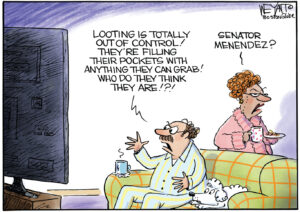One in Four People Paid a Bribe in the Past Year
Twenty-seven percent of people worldwide resorted to graft to secure public services over the last 12 months, a global corruption survey says.
Twenty-seven percent of people worldwide resorted to graft to secure public services over the last 12 months, a global corruption survey says.
The poll, conducted by Transparency International, is the world’s largest assessment of public opinion on the subject. It found that people considered political parties the most corrupt institutions, followed by the police, judiciary, parliament and public officials. Respondents described religious institutions as being the least corrupt.
Of the 107 countries surveyed, people in only 11 of them believed corruption had decreased. Rates of political bribery were the highest in the Democratic Republic of the Congo, Ghana, Indonesia, Kenya, Liberia, Nigeria and Sierra Leone.
— Posted by Alexander Reed Kelly.
Your support matters…The Guardian:
Transparency International says its annual survey shows a crisis of trust in politics and real concern about the capacity of institutions responsible for bringing criminals to justice.
“It is the actors that are supposed to be running countries and upholding the rule of law that are seen as the most corrupt, judged to be abusing their positions of power and acting in their own interests rather than for citizens they are there to represent and serve,” said the global corruption barometer, a survey of 114,000 people in 107 countries.
Politicians could lead by example by publishing asset declarations for themselves and their immediate family, suggested Transparency International. Political parties and individual candidates should disclose where they get their money from to make clear who funds them and reveal potential conflicts of interest.
Independent journalism is under threat and overshadowed by heavily funded mainstream media.
You can help level the playing field. Become a member.
Your tax-deductible contribution keeps us digging beneath the headlines to give you thought-provoking, investigative reporting and analysis that unearths what's really happening- without compromise.
Give today to support our courageous, independent journalists.






You need to be a supporter to comment.
There are currently no responses to this article.
Be the first to respond.